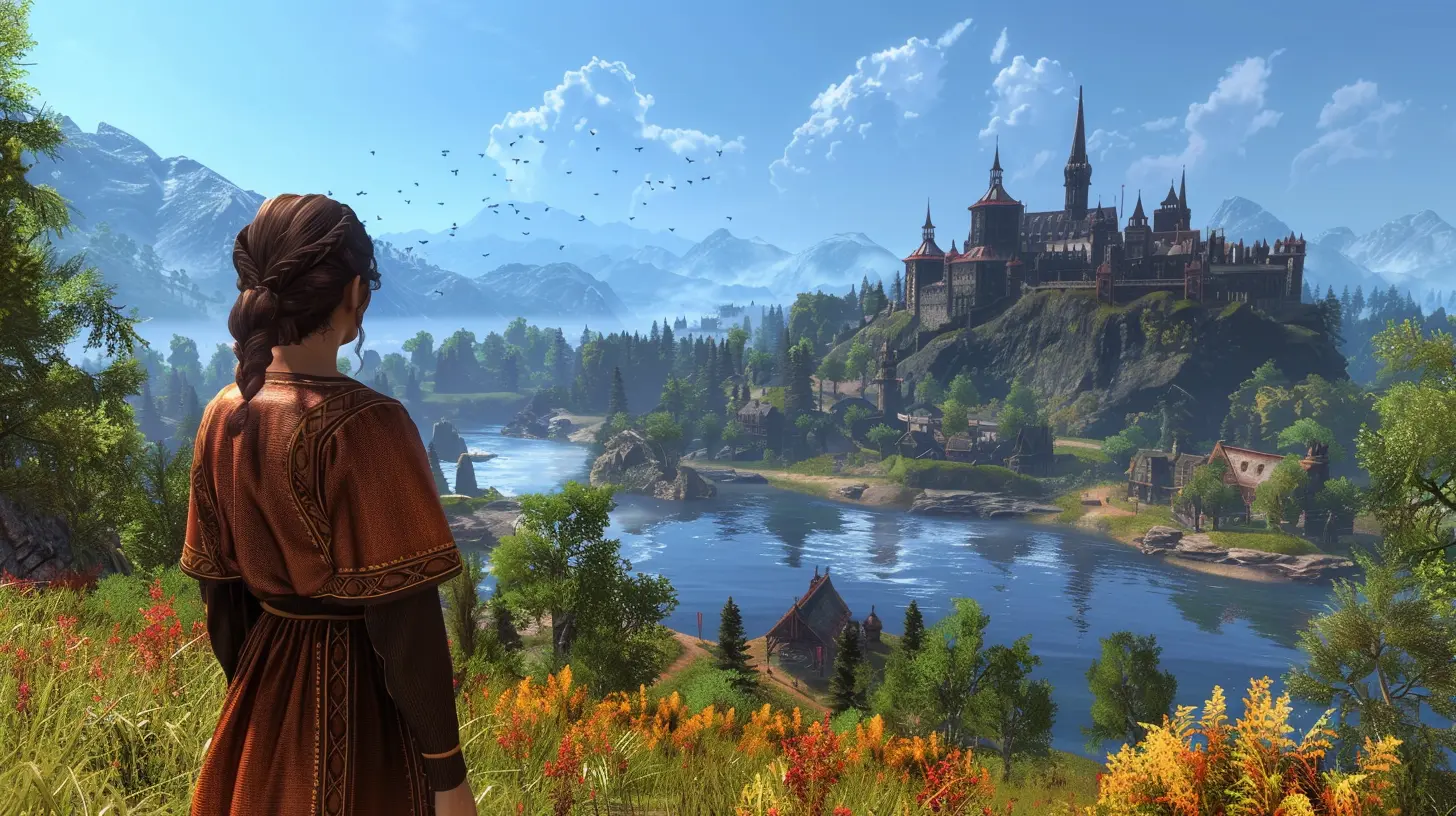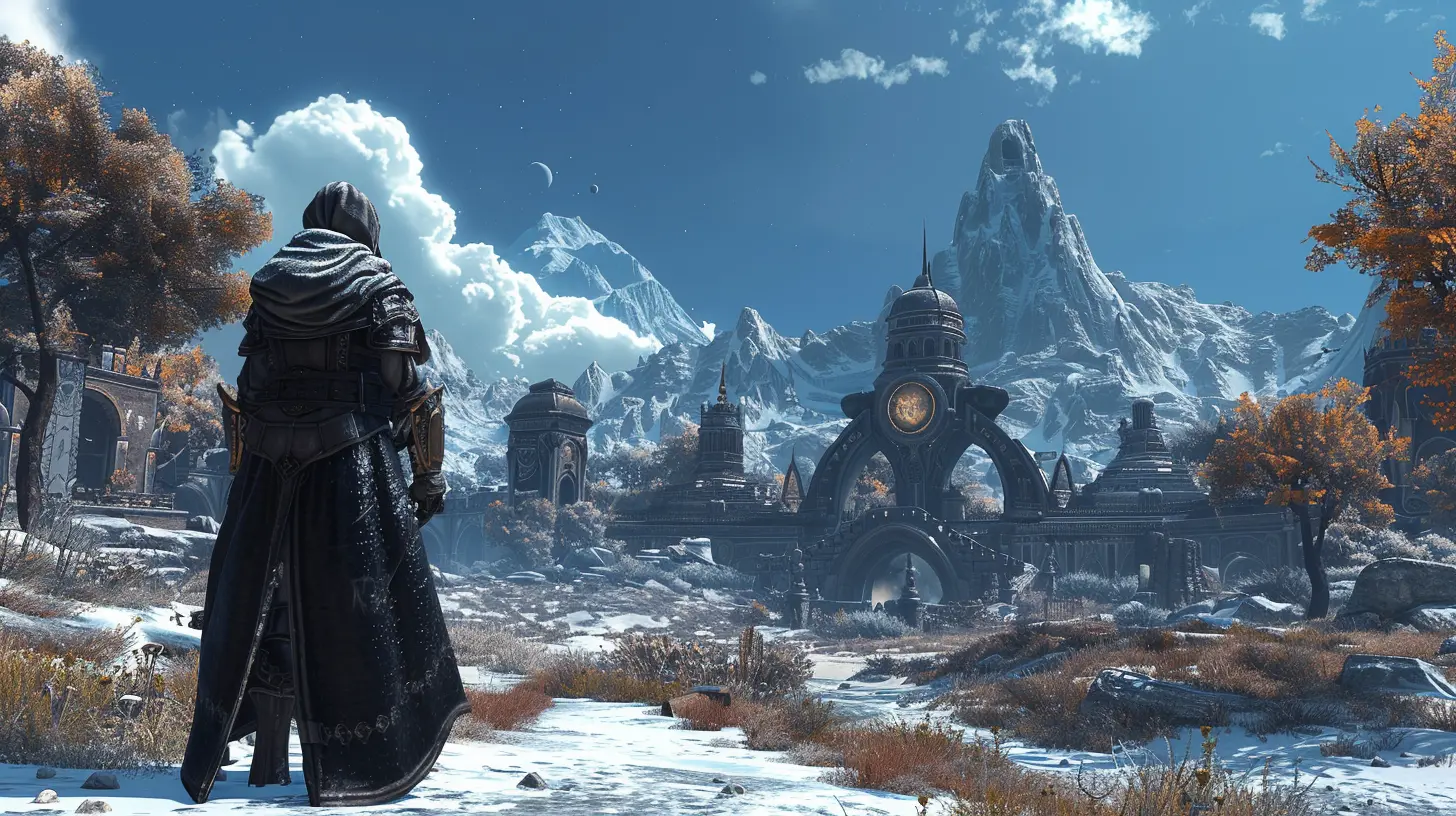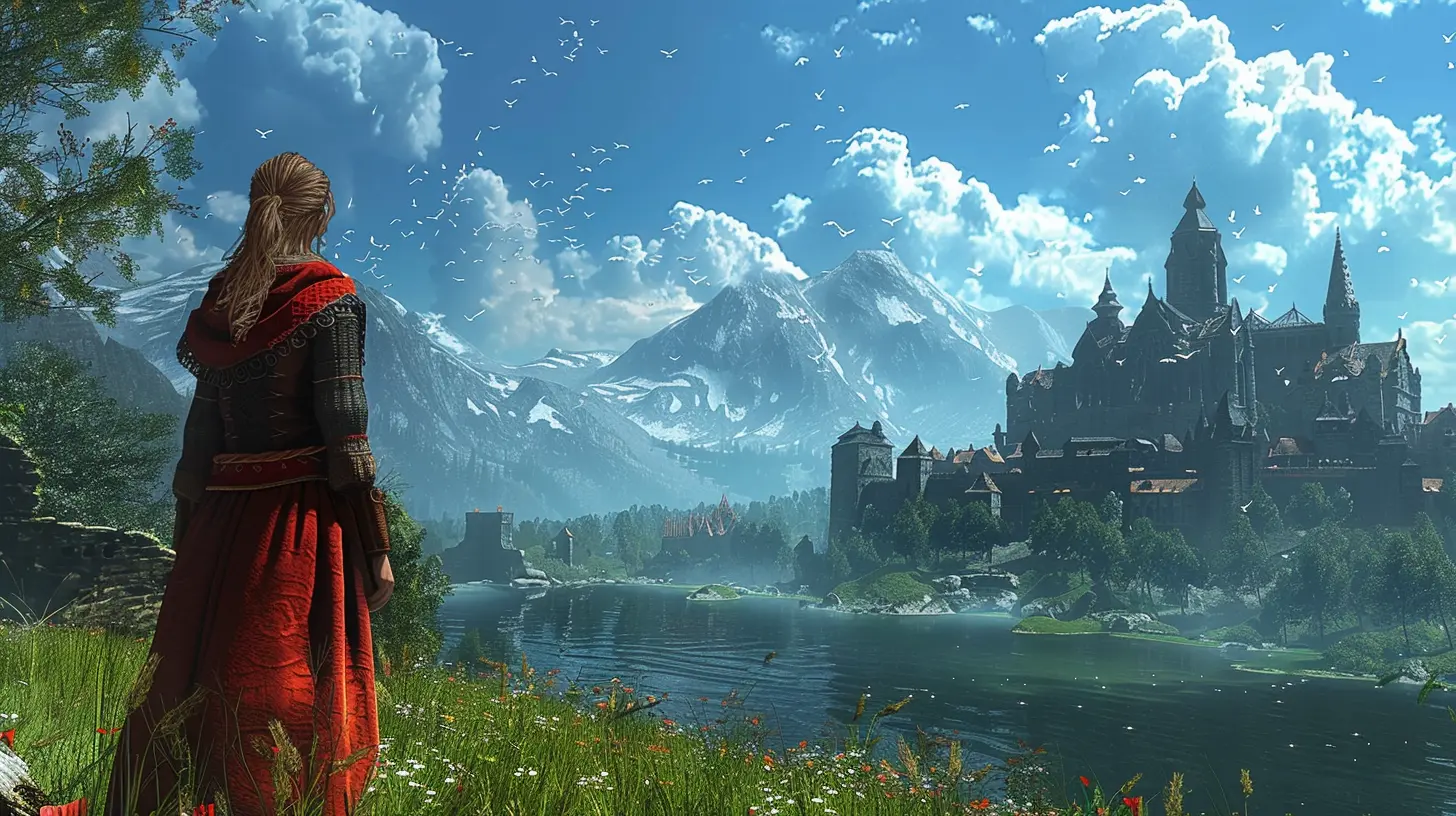How Player Feedback Shapes the Future of MMOs
17 September 2025
Let’s face it — Massively Multiplayer Online games (MMOs) are living, breathing worlds. They evolve, grow, shift direction, and sometimes even crash and burn. And guess who's steering that never-ending update train? You guessed it — the players.
In the wide and wild world of MMOs, the player's voice has always been loud. But lately, it's become downright deafening, and that’s a good thing. Player feedback isn’t just a suggestion box hiding in the corner of the dev room anymore — it’s the GPS guiding the entire journey.
So buckle up. We're diving into how player feedback is shaping the future of MMOs in very real, very exciting ways.
The MMO World: A Constant Work-in-Progress
Unlike single-player games that are more or less “done” at launch, MMOs are never truly finished. They're constantly patched, expanded, balanced, and upgraded. You could almost think of them like big theme parks. New rides get built, old attractions are closed, and the crowd’s reactions determine what stays and what goes.That’s where feedback fits in. From the earliest betas to full-blown late-game content updates, player opinions deeply influence how these sprawling worlds morph over time.
But how exactly does that feedback become action? Let's unpack it.
Feedback: More Than Just Complaints
Okay, let’s be real — feedback often begins with a complaint. “This class is busted.” “Why did you nerf that gear?” “Fix your matchmaking!”Sound familiar?
But underneath the rants and raves is a treasure trove of insight. Players are passionate because they care. And that passion fuels suggestions, bug reports, balance discussions, and creative ideas that even devs might not have considered.
The key is how developers sift through the noise to find the gold.
Forums, Subreddits, and the Social Media Storm
Gone are the days when feedback was sent through clunky email forms or printed surveys. Now, it's all about real-time responses. Players voice opinions on:- Game forums
- Twitter/X (depending on what it’s being called today)
- Reddit threads
- Discord communities
- Twitch chat during dev livestreams
Every like, retweet, and upvote counts. Devs now monitor these platforms religiously — not just out of curiosity, but because they have real impact on what gets changed.
Remember when Blizzard reversed a World of Warcraft change within 48 hours because of Reddit backlash? Yeah, that wasn’t a coincidence.
Beta Testing: The Real MVP of MMO Feedback
Let’s not overlook the almighty beta phase. Betas are now considered by many players not just as sneak peeks, but as unofficial quality assurance periods. It’s a testing ground where feedback can make or break a mechanic before it even hits the live servers.Smart developers beg for feedback during open and closed betas. And smarter ones act on it immediately.
In fact, some MMOs like “Final Fantasy XIV” built their entire redemption arc on listening to players during catastrophic early phases. Square Enix literally shut down the original version and came back stronger with “A Realm Reborn” — all because they took feedback seriously.
Data Meets Dialogue: The Power of Analytics
Now here’s the twist. Devs don’t just listen — they watch. No, not in a creepy "Big Brother" way, but via powerful game analytics.They can see how long players stay in a dungeon, how often a class gets picked, where players die most frequently, and even what in-game events they skip.
But here's the magic: blending that data with direct player feedback. It's like matching the what with the why. If players are quitting a raid halfway through and also tweeting “this boss phase is broken,” devs instantly know what to fix.
Community Councils and Player Advisory Groups
Some MMOs have taken feedback a step further by creating formal structures for it.Enter: player councils.
These are small groups of veteran players who work directly with community managers and sometimes even developers themselves. Games like “EVE Online” have had "The Council of Stellar Management" for years — a legit elected body of players who provide feedback at the highest levels.
It sounds like a fantasy senate, and it kind of is. But it works. The players bring real-world knowledge of the game’s pain points, and the devs get trustworthy points of contact in the community.
That’s a win for everyone involved.
When Listening Goes Wrong: The Risk of Over-Catering
Let’s pump the brakes for a second though.While feedback is powerful, too much of it — or reacting too quickly — can backfire. There’s a fine line between listening and trying to satisfy everyone. Spoiler: you can’t.
Sometimes players demand nerfs that break the game balance. Or they want features that don’t align with the devs' broader vision. If game studios try to please every angry voice, the game can spiral into a mess of conflicting mechanics and half-baked systems.
The secret? Balance. Smart developers weigh feedback carefully, test changes thoroughly, and communicate openly when they decide NOT to act on a suggestion.
Real-Life Examples of Feedback-Driven Changes
Let’s dig into a few iconic moments when feedback changed the direction of an MMO:1. Final Fantasy XIV - From Failure to Fan Favorite
We mentioned it already, but it deserves another nod. FFXIV was dead on arrival back in 2010. It was clunky, buggy, and downright confusing. But rather than bury the project, the dev team took every ounce of feedback to heart and rebuilt the game from the ground up.“A Realm Reborn” wasn’t just a title — it was a statement. And it worked. Today, FFXIV is one of the top MMOs on the planet.
2. World of Warcraft’s Classic Revival
Players begged Blizzard for years to bring back "Vanilla WoW." For a long time, the company said no.Then private servers exploded, petitions circulated, and the feedback became too loud to ignore.
Blizzard eventually launched “WoW Classic,” and it pulled millions of nostalgic players back into the fold. The feedback? Spot on.
3. New World’s Bumpy Ride
Amazon’s “New World” had a hype train like no other. But after launch, players quickly found bugs, exploitable mechanics, and PvP imbalances. The Reddit threads were endless.To their credit, the dev team rolled out rapid patches, constantly communicated on Twitter and forums, and reshaped entire systems — like the endgame progression — based on what players were saying.
It wasn’t a perfect launch, but the feedback loop made sure the game stayed afloat.
How Devs Can Encourage Better Feedback
Getting feedback is easy. Getting useful feedback? That’s art.Here’s how MMOs can help players give better input:
- In-game feedback tools: Let players report bugs or give opinions directly from the interface.
- Open development diaries: Share behind-the-scenes reasoning for changes, so players understand where the devs are coming from.
- Surveys with rewards: Who doesn't want a cool in-game cosmetic just for filling out a 60-second survey?
- Livestream Q&As: These help humanize the developers and allow real-time interaction with the community.
- Feedback moderation: When communities are toxic, good feedback gets drowned. Devs need to actively moderate platforms to keep things constructive.
The Role of Influencers & Content Creators
Let’s not ignore the heavyweights here — streamers, YouTubers, and content creators.Love them or hate them, these vocal internet personalities often serve as the megaphones of community sentiment. A single video by a major streamer can sway public opinion or push devs to address specific issues.
When influencers rally behind a complaint or rave about a patch, it generates waves of player discussion. Devs watch these trends closely — not because they’re fans, but because it reflects what the broader player base is feeling.
Players Are Co-Pilots in Game Design Now
Here’s the bottom line: the MMO genre is no longer a one-way street. Developers are no longer gods in their ivory towers handing down patch notes from on high. They’re co-pilots — and we, the players, are in the cockpit too.That doesn’t mean players get to make every decision. But it does mean our voices help guide the journey.
Every forum post, data chart, beta report, and meme-filled Reddit thread contributes to the evolution of these digital worlds we love spending time in.
The Future of MMOs Will Be Built By… You
So where does this all lead?As tech advances and MMOs get more ambitious, the need for quick, quality feedback will grow. We’ll likely see even more real-time polling systems, AI-enhanced feedback sorting, and community-involved roadmaps.
The future of MMOs won’t just be crafted in studios full of brilliant minds — it’ll be shaped by everyday players giving a damn about the game.
So next time you drop a comment, file a bug, or jump on that dev Q&A stream — remember, you’re helping shape the fantasy worlds of tomorrow.
Not all heroes wear capes. Some wear mithril armor and ride flying mounts.
all images in this post were generated using AI tools
Category:
Massively Multiplayer OnlineAuthor:

Tina Fisher
Discussion
rate this article
1 comments
Jocelyn Larsen
Great read! It’s amazing how player feedback really shapes MMOs and creates a more immersive experience. Listening to the community not only enhances gameplay but builds a sense of belonging. Here’s to more developers embracing our voices and crafting worlds we love to dive into! Keep up the awesome work!
September 17, 2025 at 4:57 AM

Tina Fisher
Thank you! I'm glad you enjoyed the read. Player feedback truly is vital for creating immersive and engaging MMO experiences!


